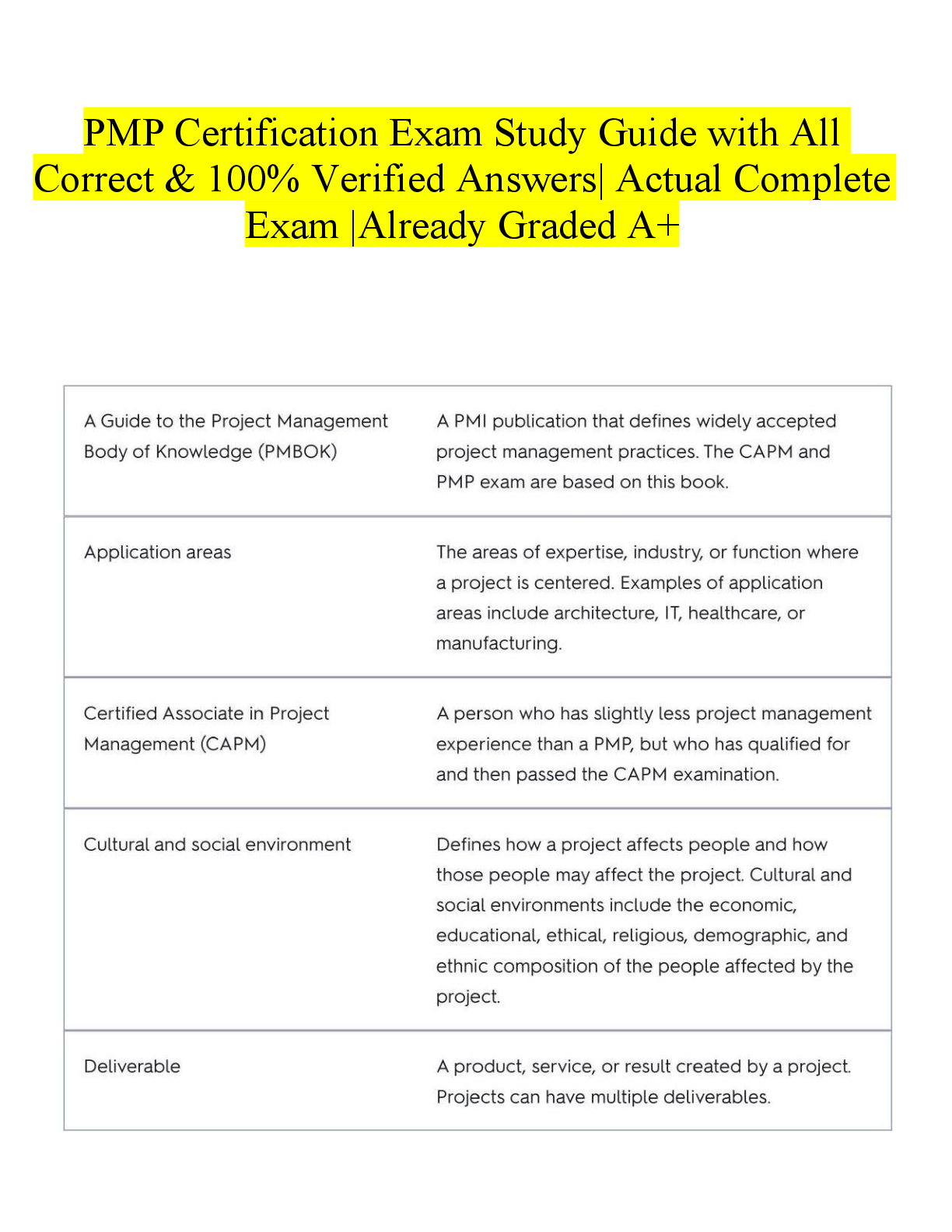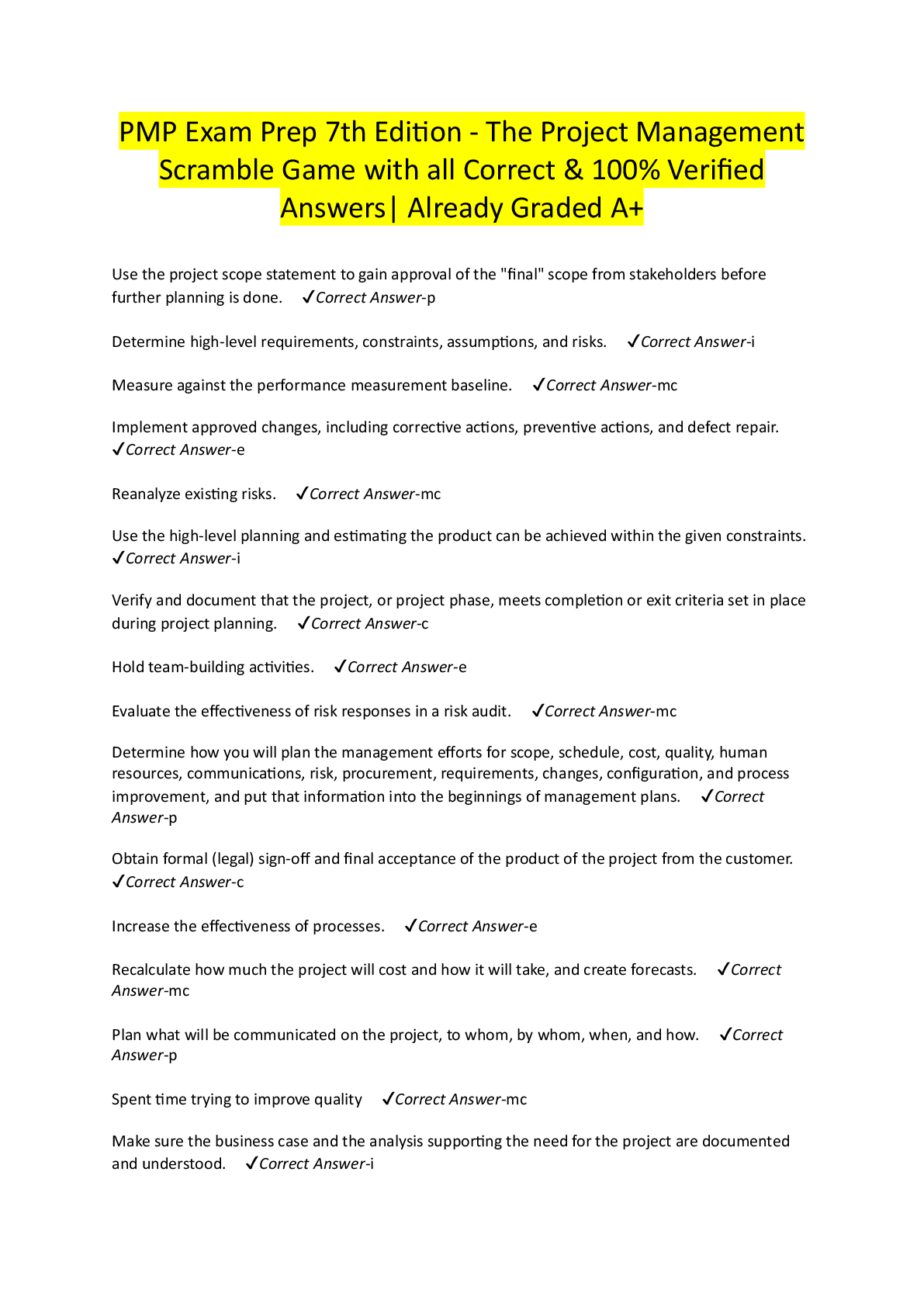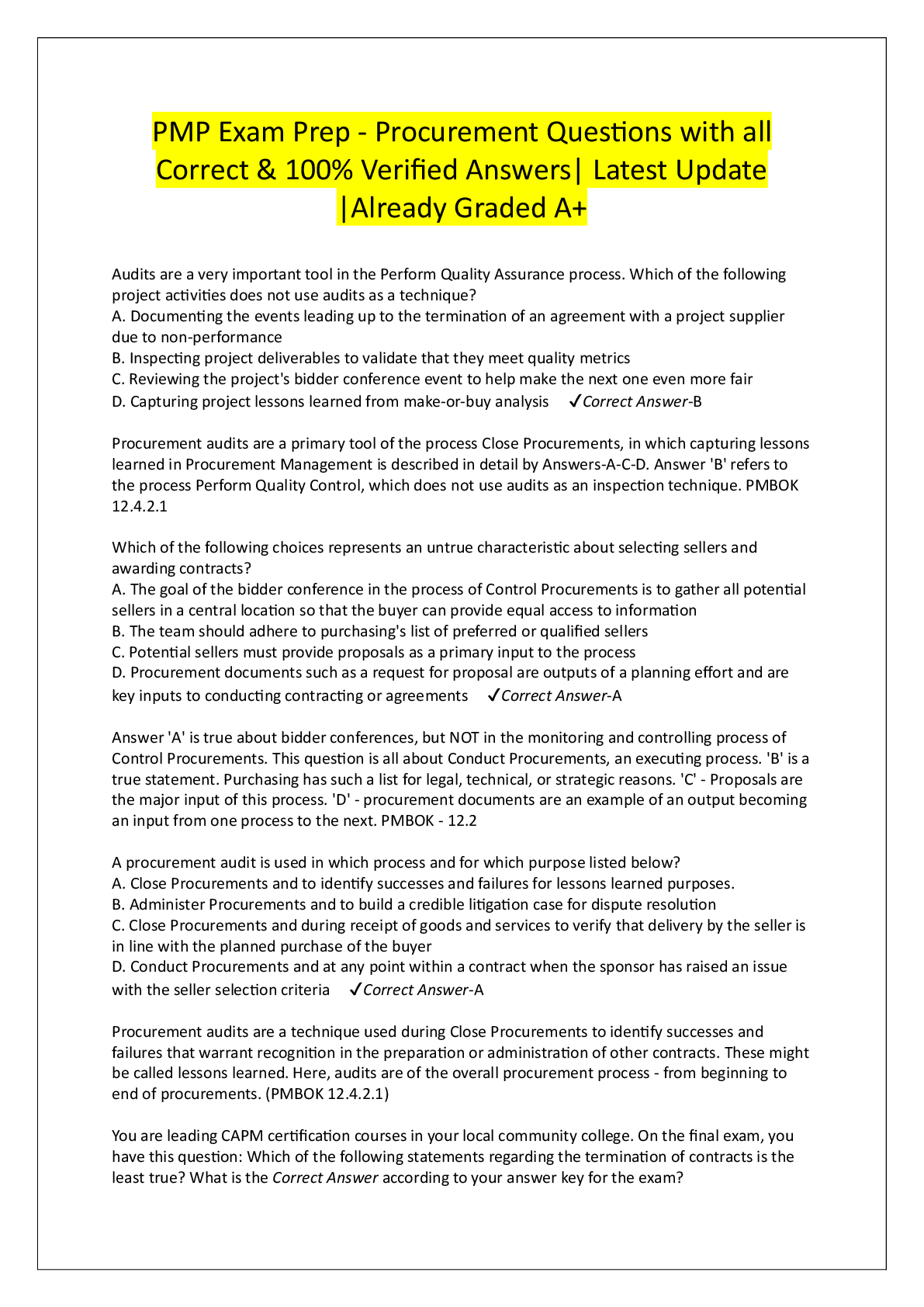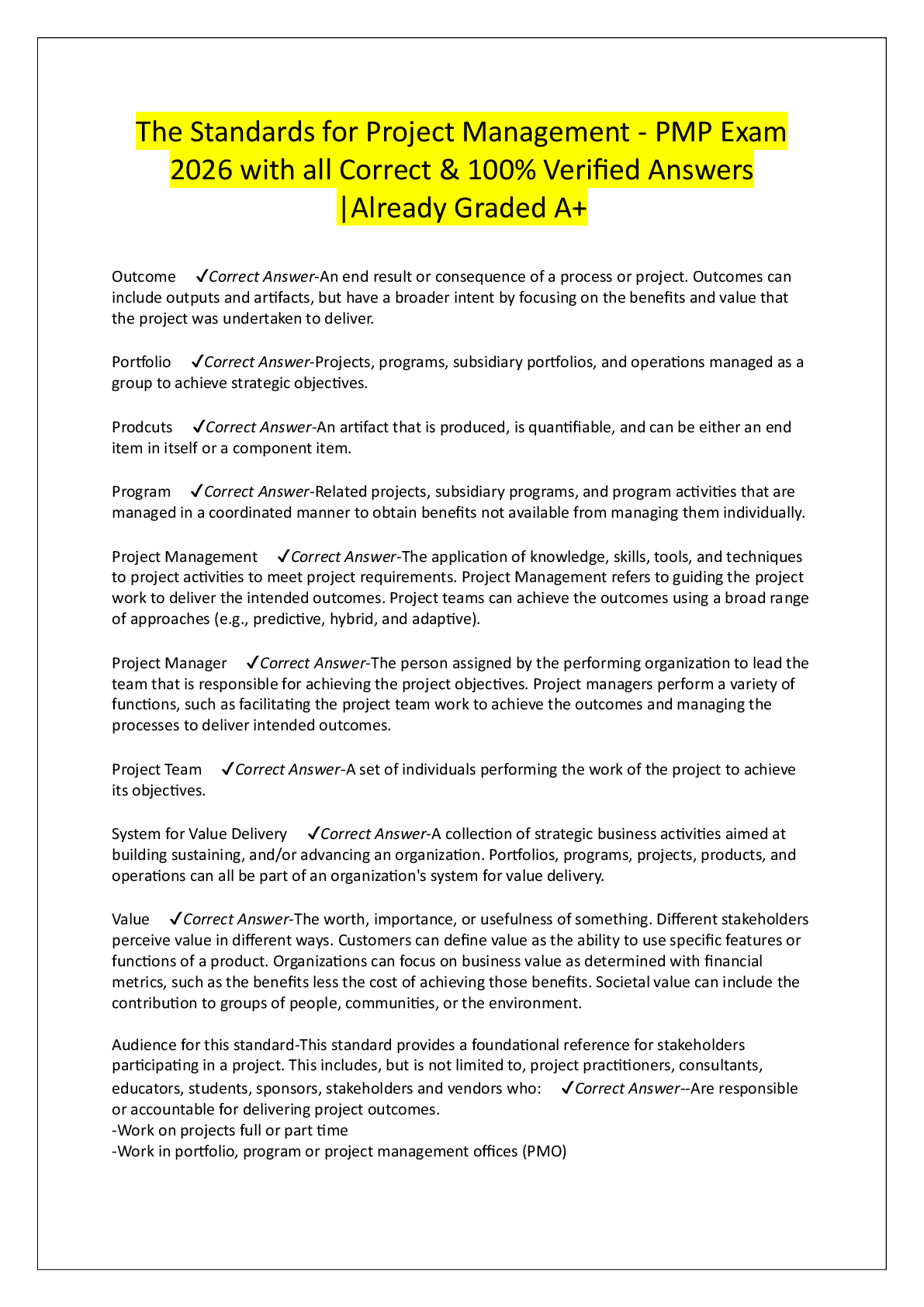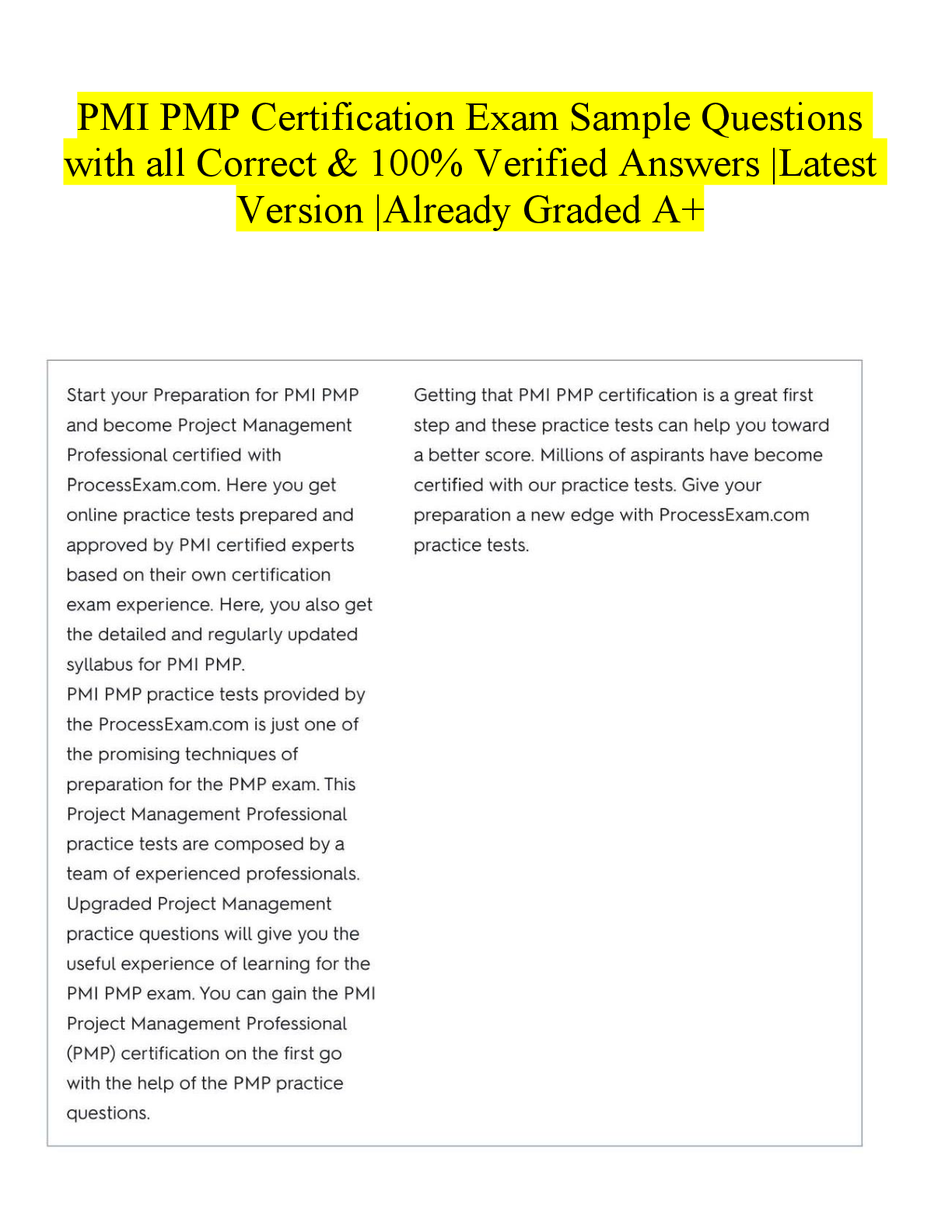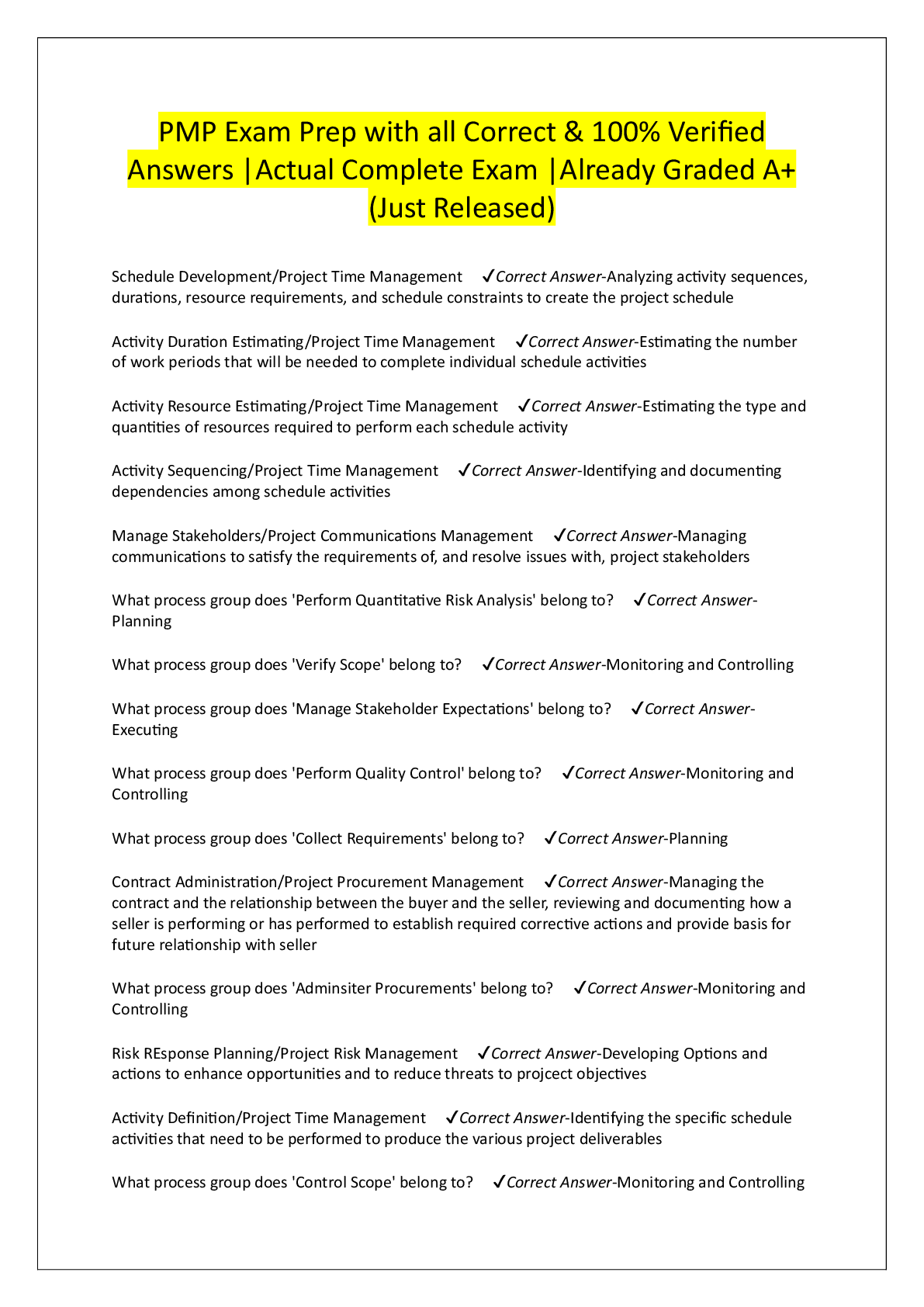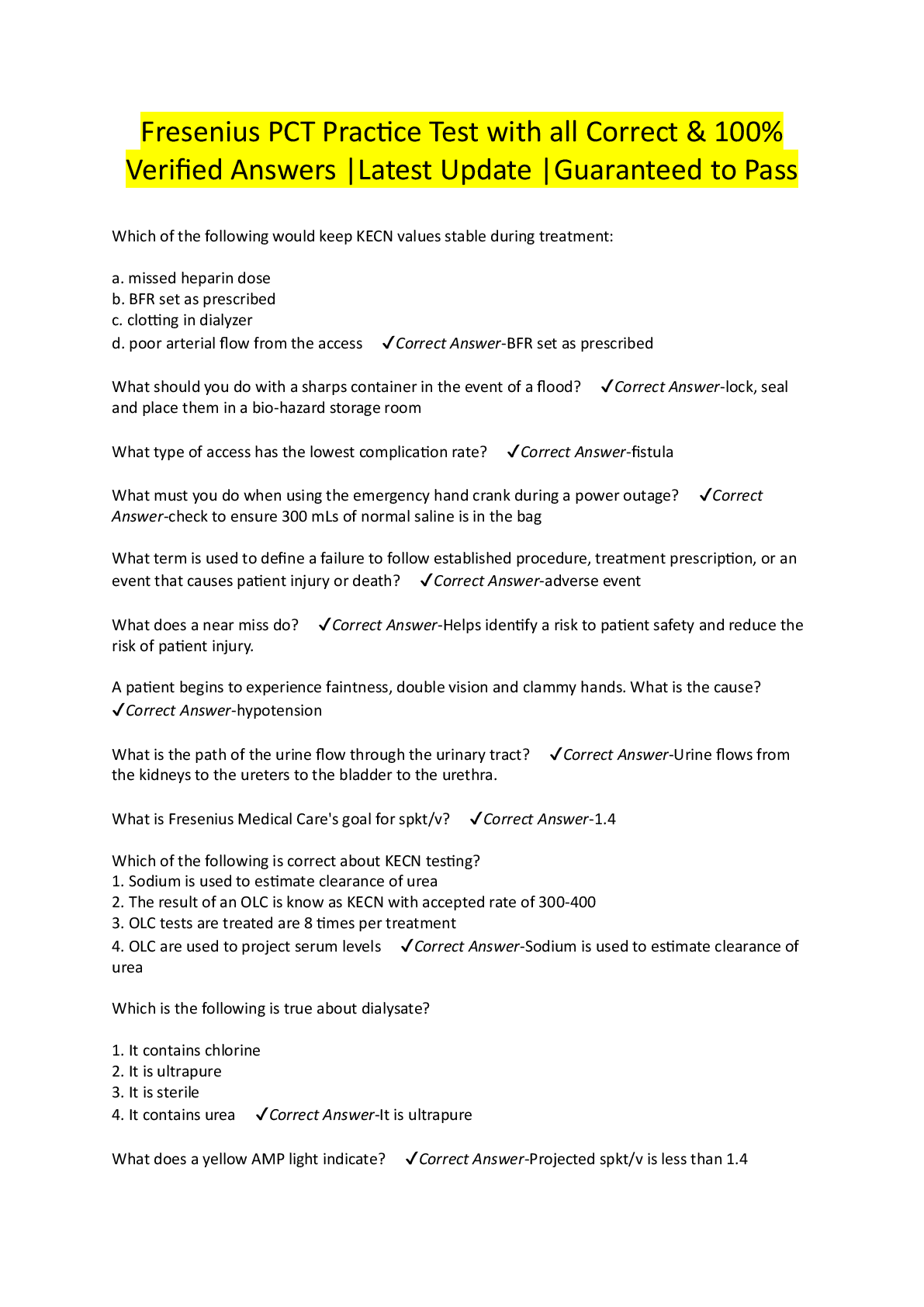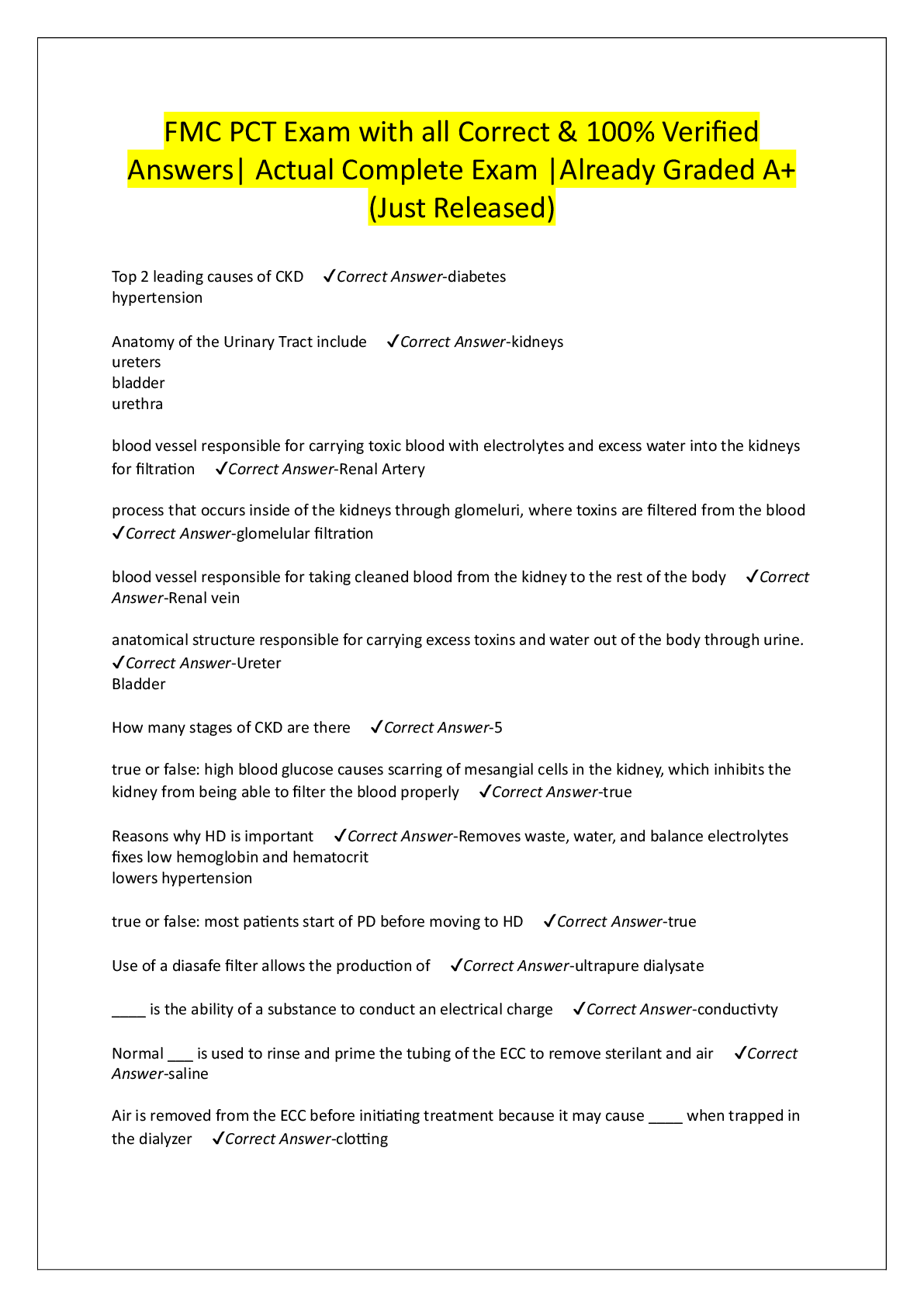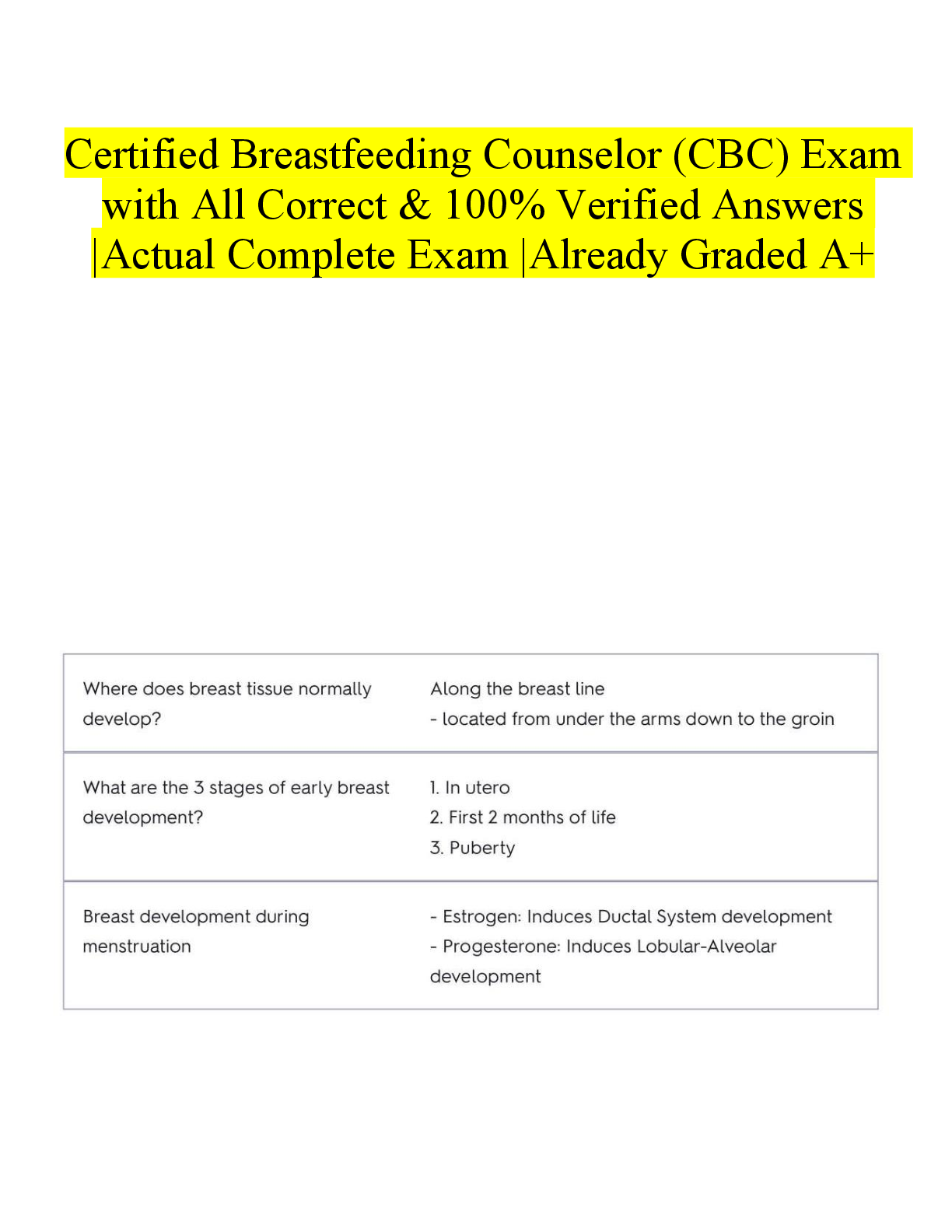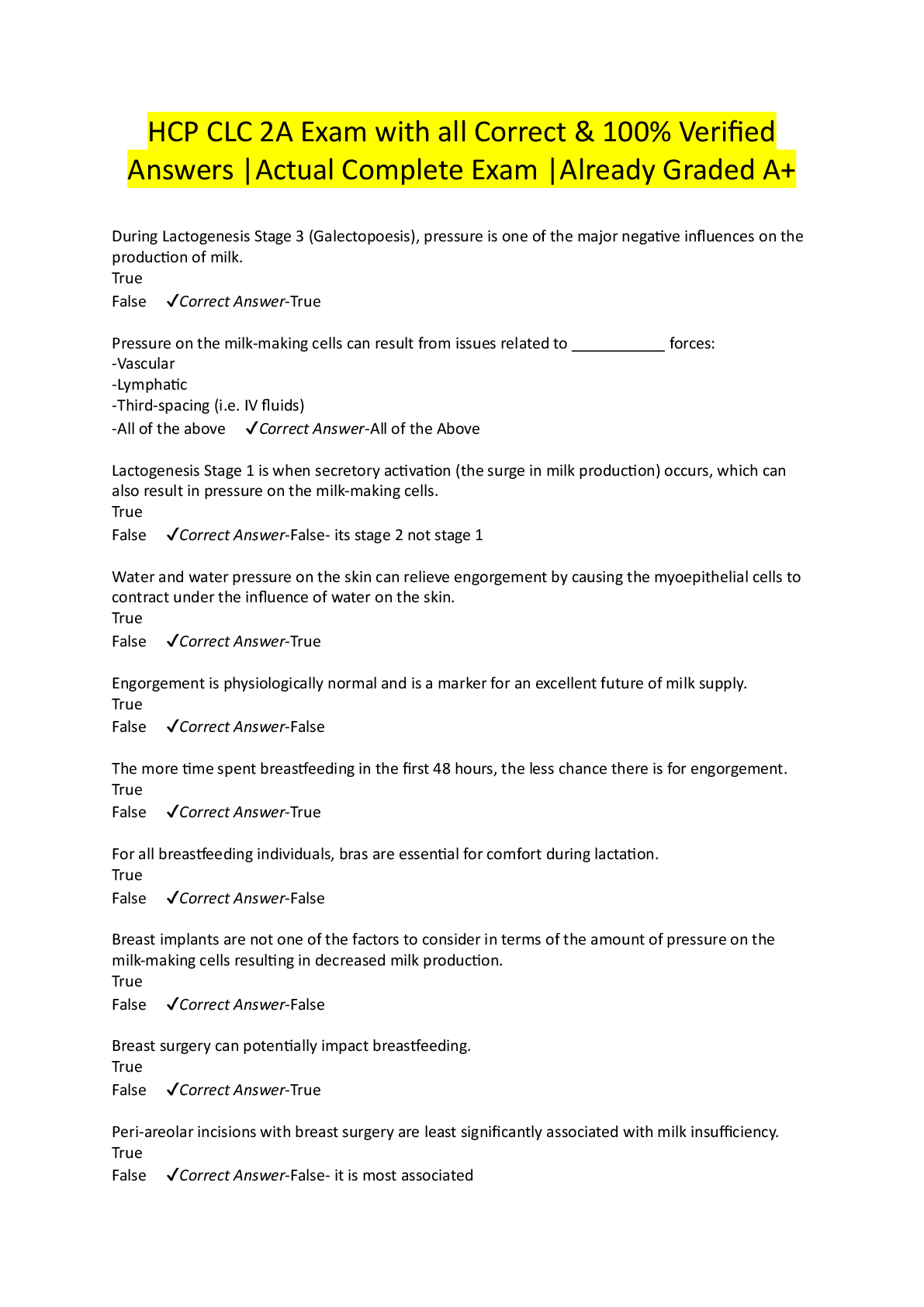BSOP 429 Week 8 Final Exam (Version 2) Questions And Best Explained Latest And Complete (VERIFIED) 100% Answers 2020
Document Content and Description Below
(TCO 4) The two different approaches to load work centers in job-shop scheduling are
(TCO 2) The priority rule where jobs are processed according to the smallest ratio of due date to processing time
...
is
(TCO 2) A scheduling rule used for sequencing jobs through two work centers is
(TCO 3) The owner and operator of the local franchise of Handyman, Inc., has four jobs to do today, shown in the order they were received:……If he uses the first-come, first-served (FCFS) priority rule to schedule these jobs, what will be the average completion time?
(TCO 5) The ultimate goal of JIT operations is to have
(TCO 6) Building up an inventory of standard parts or modules instead of immediately producing the finished end items is the essence..
(TCO 7) A kanban card is used to signal that
(TCO 10) The type of processing system that is used for highly standardized products is
Page 2
(TCO 8) Does cellular manufacturing apply best to repetitive, high-volume product or nonrepetitive, low-volume product? Explain and give an example.
(TCO 11) Validate or invalidate the statement that although inventories are maintained, the goal of lean operations is to maintain a minimum of safety stock.
(TCO 9) Elaborate on the statement: “The output of the system cannot exceed the output of the bottleneck operation(s).”
(TCO 4) Differentiate between infinite loading and finite loading as two major approaches used to load work centers.
(TCO 12) Explain why batch process helps maximize worker efficiency.
(TCO 2) Refer to the following data for jobs waiting to be processed at a single work center (jobs are shown in order of arrival):…………What is the schedule sequence using the first-come, first-served (FCFS) priority rule?
(TCO 10) Respond to the question: “Which is better, MRP or JIT?”
(TCO 1) The design of the MPC system is influenced by some key features of market demand and product design. Name the key features that will lead to a make-to-stock system and explain the rationale.
(TCO 6) Market requirements drive the choice of the shop floor system approach. Describe and explain the type of market requirements that would be suitable for an MRP-based system, along the lines of product design, product variety, and product volume per period, product mix changes, and delivery schedule changes.
(TCO 10) Manufacturing strategy also drives the choice of shop floor system. Describe and explain the strategies that lend themselves to a JIT-based system, from the perspective of WIP, changeover cost, and process choice.
BSOP 429 Week 8 Final Exam (Version 2)
[Show More]
Last updated: 3 years ago
Preview 1 out of 12 pages
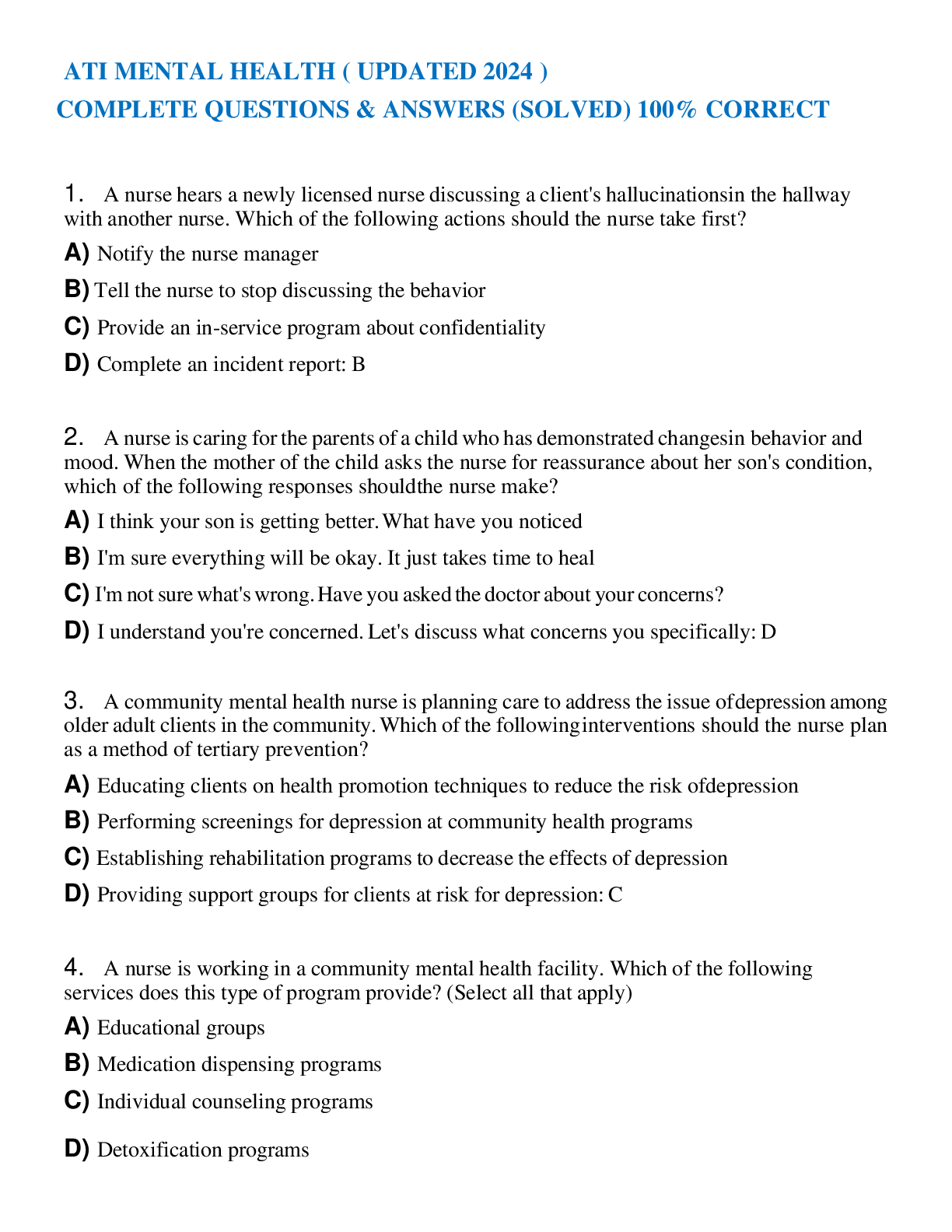
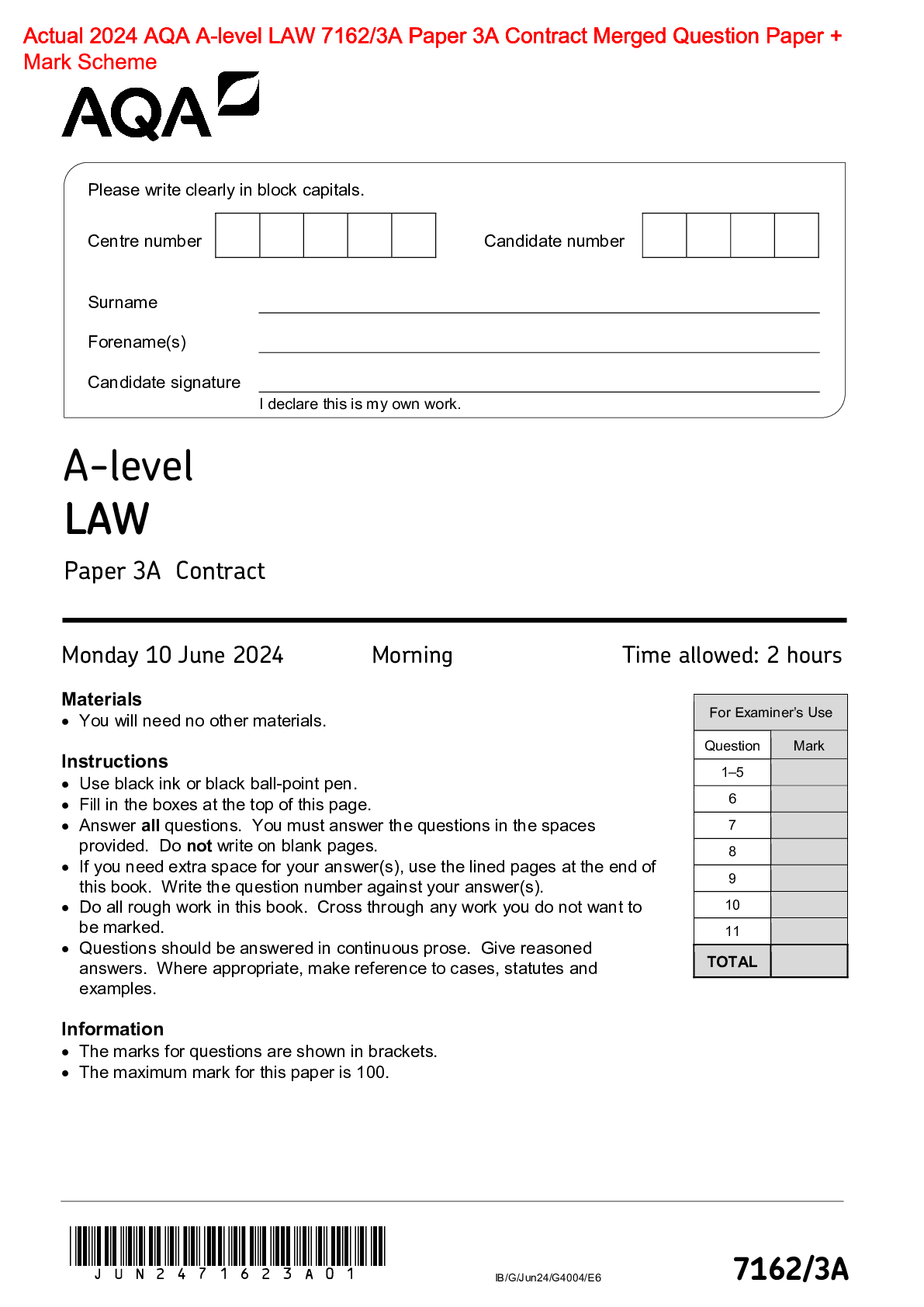

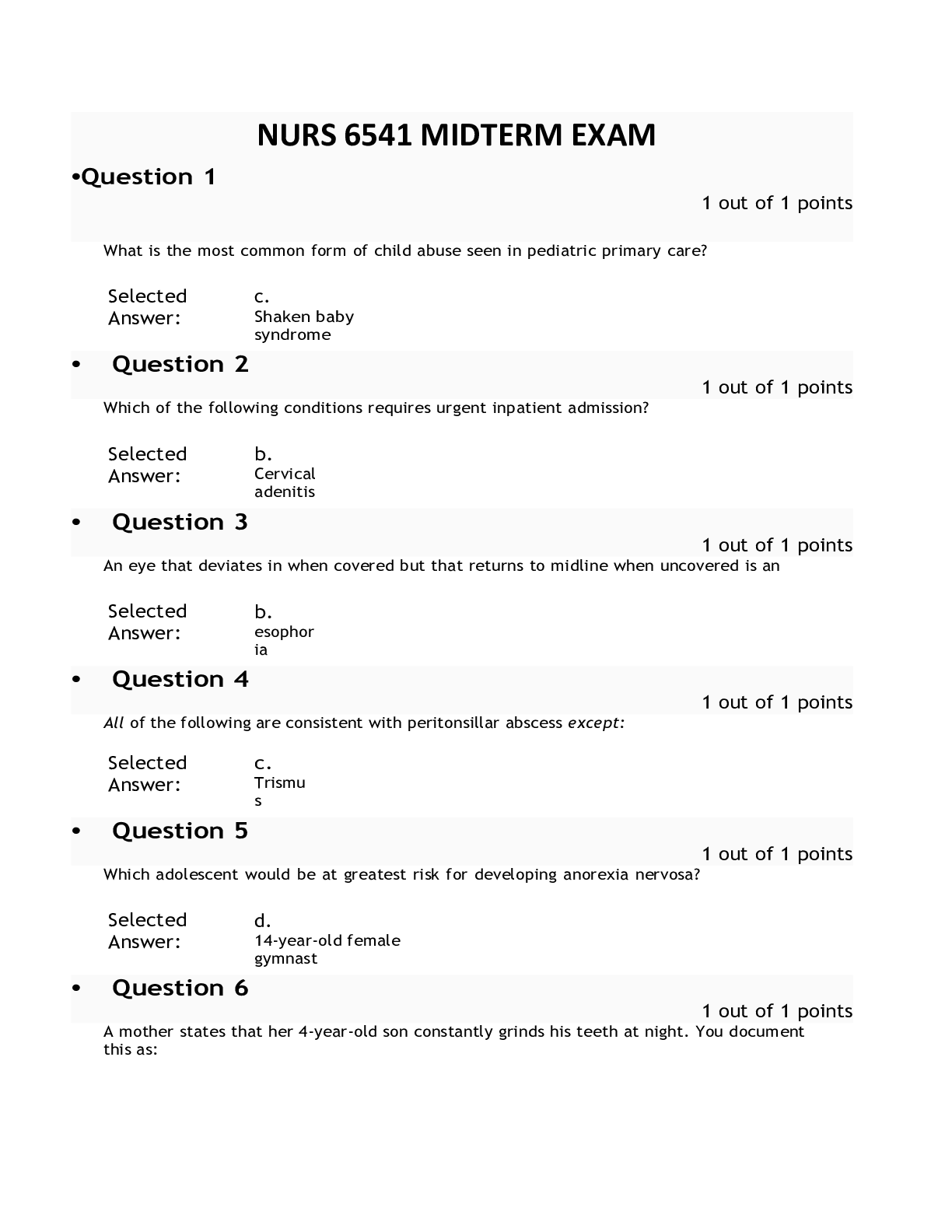

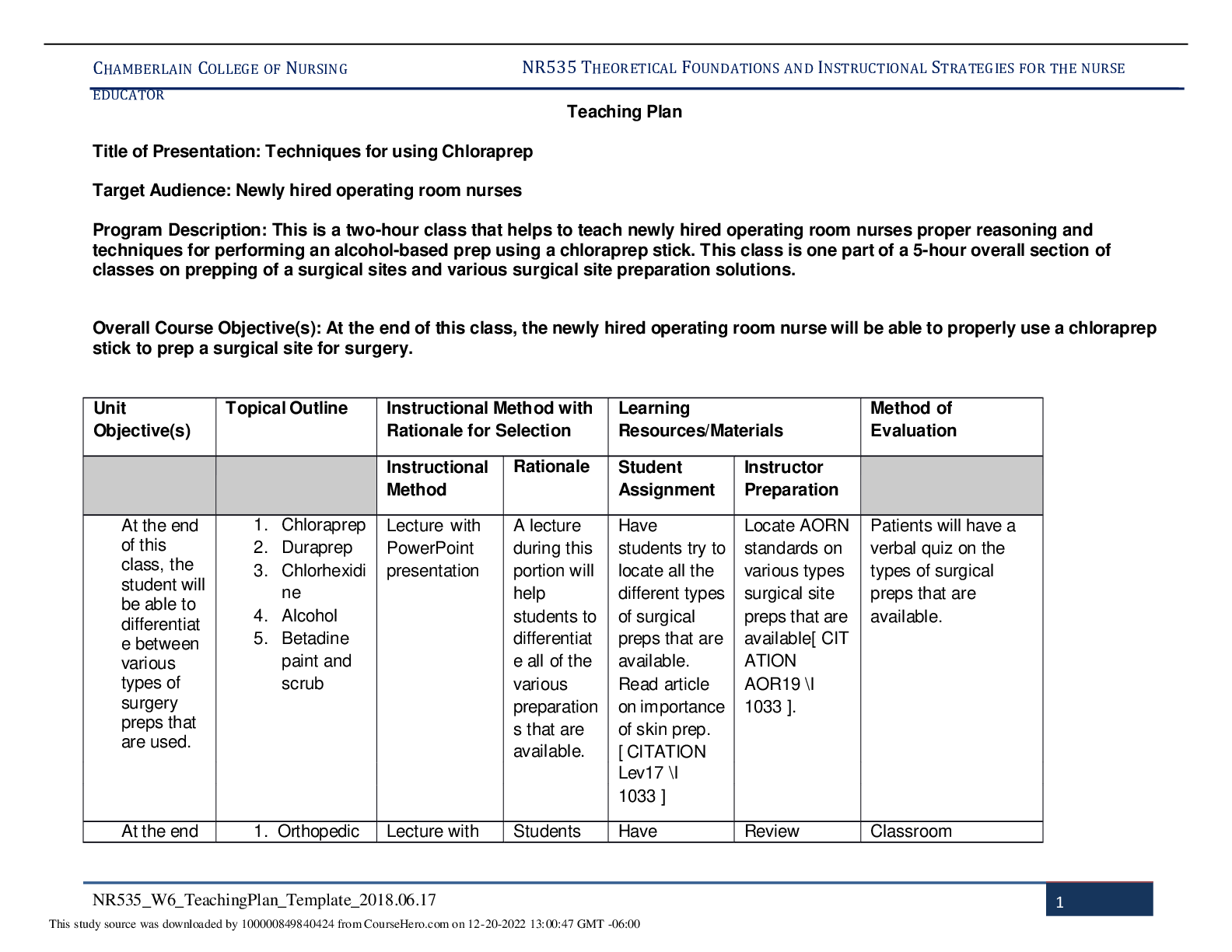

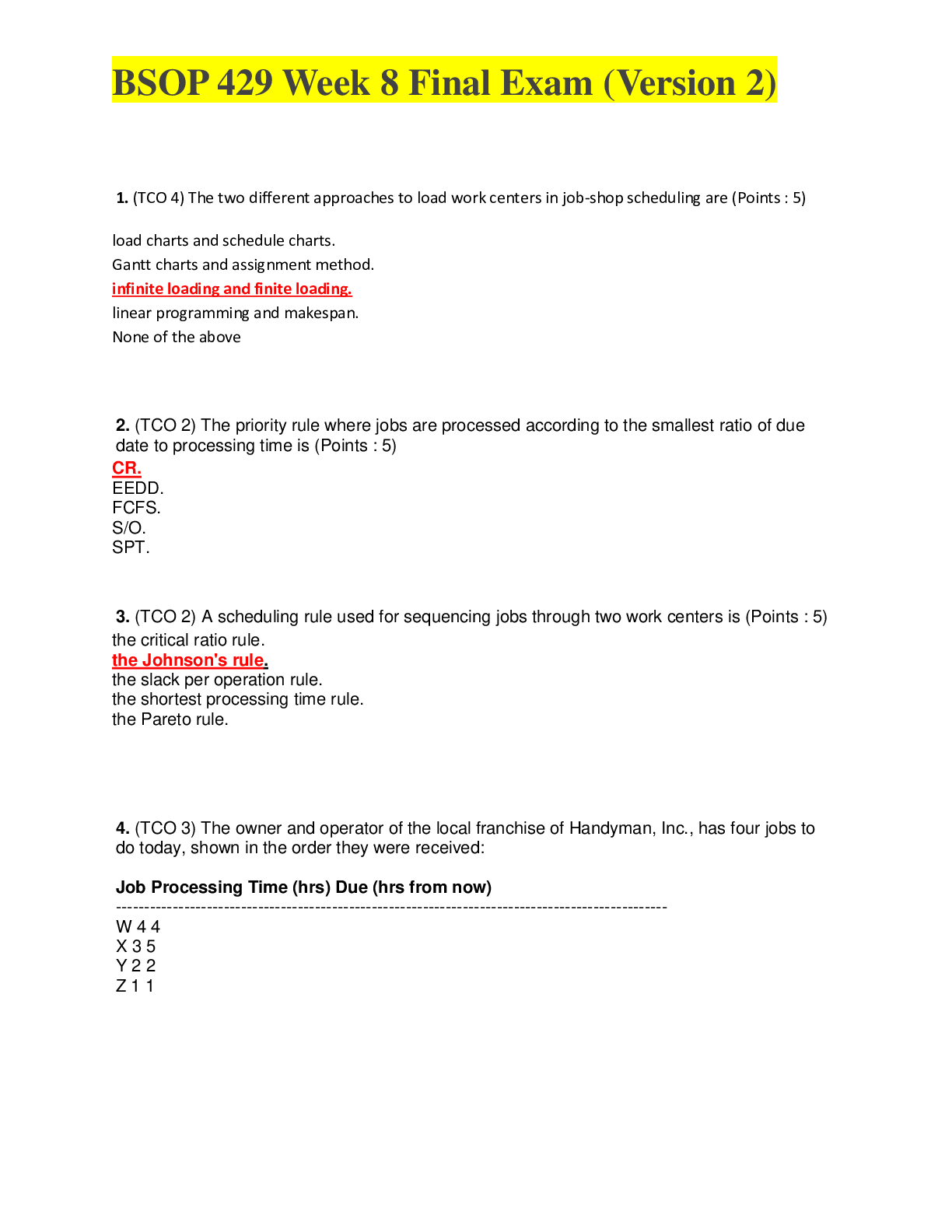

.png)




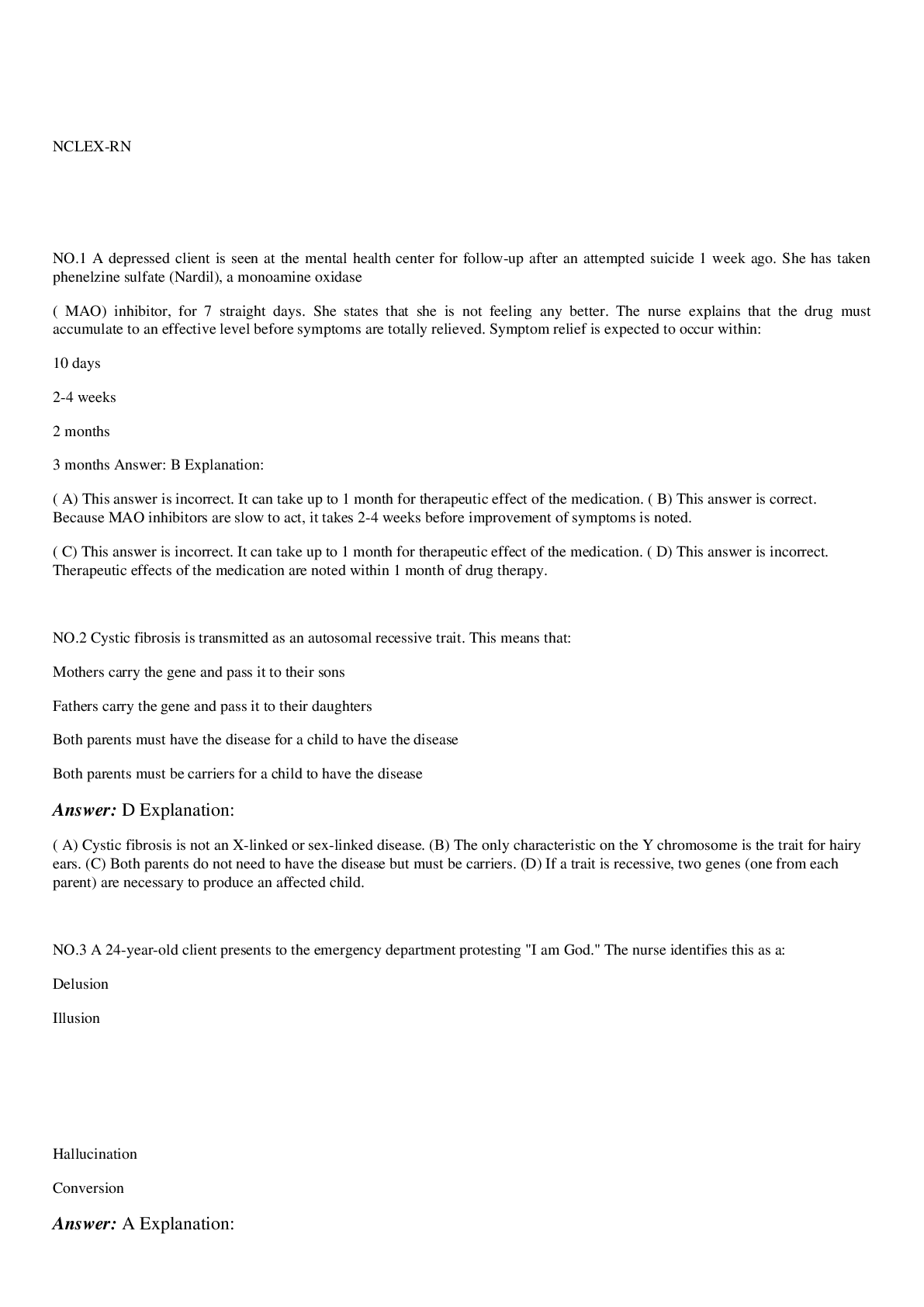
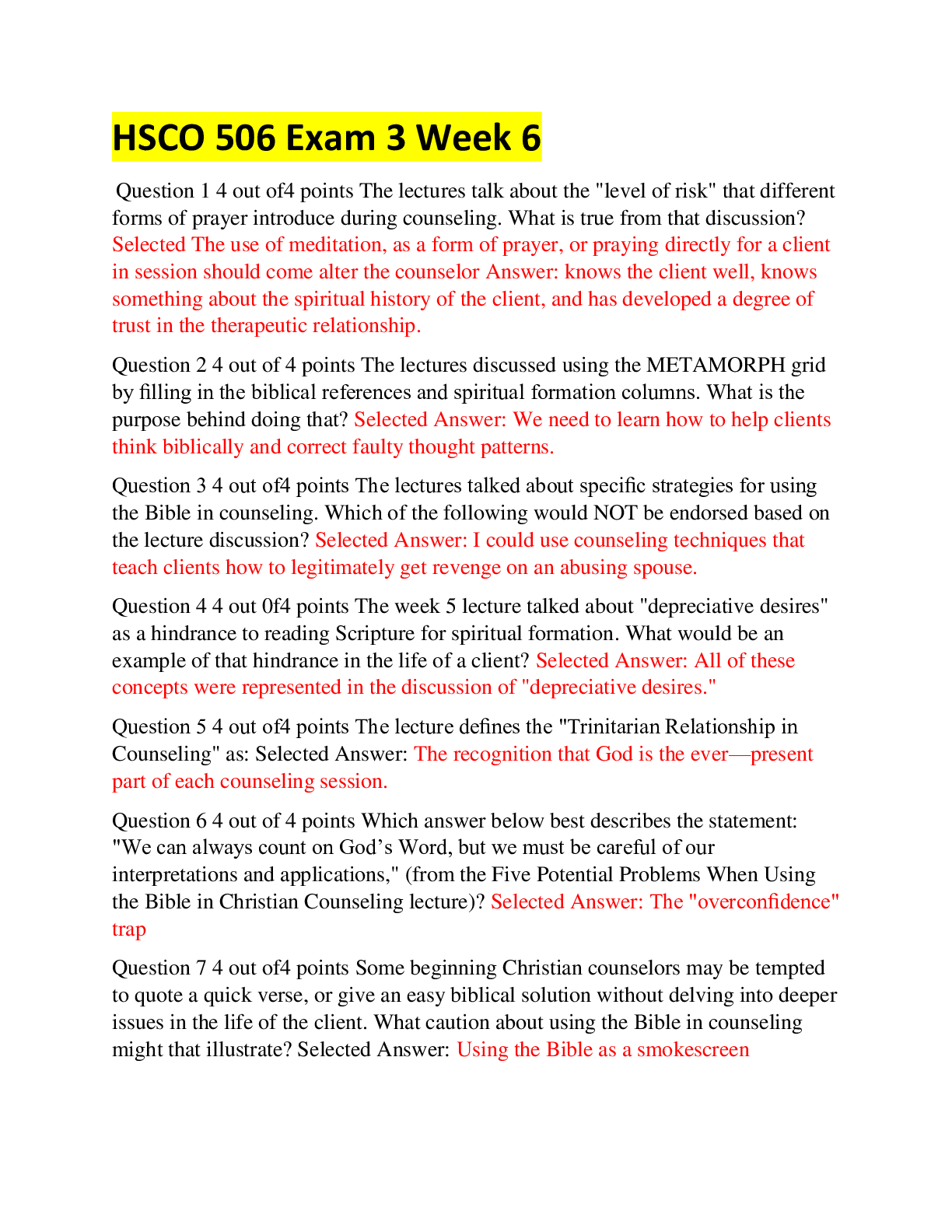

.png)





